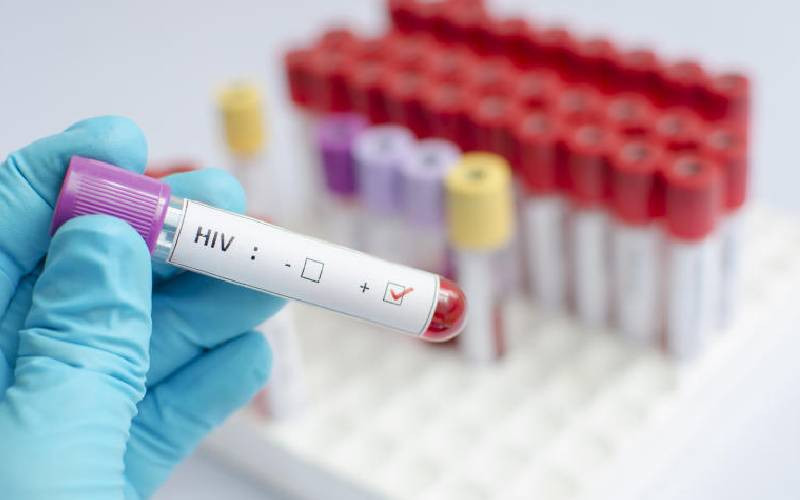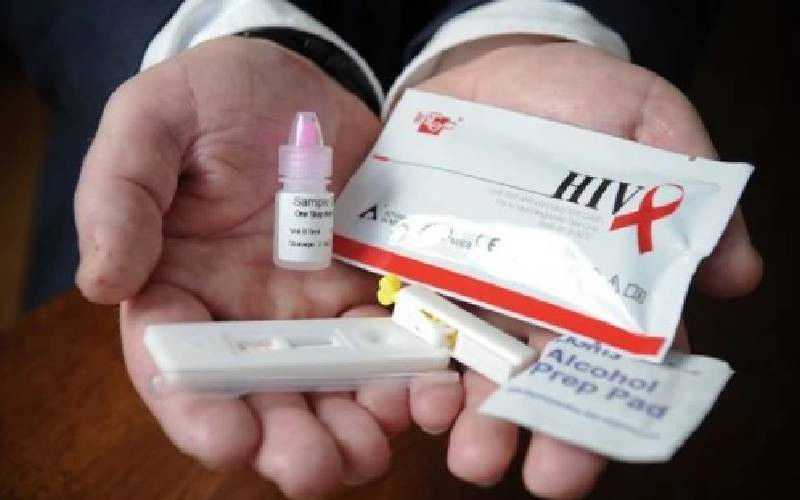
NAIROBI, KENYA: Undoubtedly, Acquired Immunodeficiency Syndrome (AIDS) is one of the most significant health and social problems facing the world today.
Africa is still rated among the most highly infected continents. A look at the statistics reveals that East and Southern Africa is the region that is hardest hit with 19 million people living with HIV, which accounts for over 50 per cent of the total number of people living with HIV in the world.
Even with all the surrounding mysteries, the best method to prevent the hopelessness experienced by the HIV/AIDS patients and their families is education and effective treatment.
An aggressive drive to increase access to antiretroviral drugs (ARVs) by HIV-infected patients in developing countries is underway.
Recently, the Ministry of Health in Kenya officially launched Dolutegravir (DTG) for use in the national programme.
A better option
Simply known as DTG, Dolutegravir is one of the drugs used to manage the HIV pandemic. It is a new treatment option in the first line of drugs with few side effects and patients living with HIV are less likely to develop resistance.
In June 2016, Botswana became the first country in Africa to roll out the use of DTG at the national level. In Kenya, a total of 27,000 people living with HIV will receive DTG by the end of 2017, followed by a large-scale roll out in early 2018. Uganda and Nigeria are on the line to pilot and adopt DTG.
Scaling up treatment would require a reliable and affordable supply of ARVs. This is being addressed through various partnerships to produce generic DTG drugs. A case at hand here is the recently announced move by GlaxoSmithKline and ViiV, to forfeit patents to allow customer-focussed interventions through the manufacture of generic DTG.
Generic production means an increased and cheaper access to modern medicine allowing better intervention in resource-limited settings. This is a critical intervention as patients have been known to shun ARV drugs over unpleasant side effects even with the repercussions that arise from abandoning the treatment routine.
Another great threat to the continuity of the treatment has been poor accessibility to the lifesaving drugs. The hindrances have emanated from a combination of factors. These span from overwhelming national poverty, the economics of the medicines, to the problems of health-care systems in developing countries.
Other factors that have also shaped the limited access, include economic stagnation, political instability, and the devastating impact of stigma and discrimination, discouraging individuals from getting tested and seeking care, support and treatment.
Tragically, the countries most affected by the AIDS epidemic have confronted the greatest problems in providing access to AIDS medicines.
An unprecedented level of resolve and funding has been observed across Africa and at a policy level, political leadership is commendably looking in this direction.
Stay informed. Subscribe to our newsletter
While at it, it is important to iron out issues that arise from brand and generic medicines. Most debates place brand and generic drugs on opposite sides but a closer look at each shows it is undeniable that each has made distinct, important contributions.
Most generic companies have overcome concerns about quality and gained the approvals necessary to become the top supplier of ARVs in the dataset. They have created a viable, and in many cases cheaper, alternatives to brand drugs.
In fact, some brand companies are not enforcing exclusive patent rights and further some have encouraged generic production by entering into voluntary licences with generic companies.
Between 2004 and 2006, World Health Organisation observed that generic companies supplied 63 per cent of the drugs in Africa, at prices that were on average about a third of the prices charged by brand companies. 85 per cent of the generic drugs were manufactured in India while the remaining 15 per cent was manufactured in South Africa.
Currently, medicines can slow the growth of the virus or stop it from making copies of itself. Although these drugs don’t eliminate the virus from the body, they keep the amount of virus in the blood low.
Antiretroviral treatment is lifelong treatment. The reason why health-care experts insist on adherence is to prevent drug resistance because the virus is prone to mutation.
This could make the virus to eventually become resistant to ARVS thus the first line drug regimen stops working and the patient may get opportunistic infections. The patient would have to be moved to the second-line regimen, which may be more complex to take, more expensive and not readily available.
Dr Kisare is a medical advisor on HIV at GlaxoSmithKline Pharmaceutical Kenya Ltd
 The Standard Group Plc is a
multi-media organization with investments in media platforms spanning newspaper
print operations, television, radio broadcasting, digital and online services. The
Standard Group is recognized as a leading multi-media house in Kenya with a key
influence in matters of national and international interest.
The Standard Group Plc is a
multi-media organization with investments in media platforms spanning newspaper
print operations, television, radio broadcasting, digital and online services. The
Standard Group is recognized as a leading multi-media house in Kenya with a key
influence in matters of national and international interest.
 The Standard Group Plc is a
multi-media organization with investments in media platforms spanning newspaper
print operations, television, radio broadcasting, digital and online services. The
Standard Group is recognized as a leading multi-media house in Kenya with a key
influence in matters of national and international interest.
The Standard Group Plc is a
multi-media organization with investments in media platforms spanning newspaper
print operations, television, radio broadcasting, digital and online services. The
Standard Group is recognized as a leading multi-media house in Kenya with a key
influence in matters of national and international interest.










